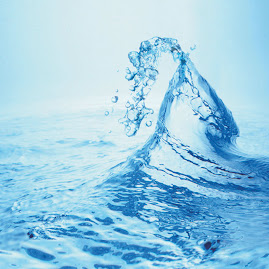Free radicals are atoms or groups of atoms with an odd (unpaired) number of electrons and can be formed when oxygen interacts with certain molecules. Once formed these highly reactive radicals can start a chain reaction, like dominoes. Their chief danger comes from the damage they can do when they react with important cellular components such as DNA, or the cell membrane. Cells may function poorly or die if this occurs. To prevent free radical damage the body has a defense system of antioxidants.
Antioxidants are molecules which can safely interact with free radicals and terminate the chain reaction before vital molecules are damaged. Although there are several enzyme systems within the body that scavenge free radicals, the principle micronutrient (vitamin) antioxidants are vitamin E, beta-carotene, and vitamin C. Additionally, selenium, a trace metal that is required for proper function of one of the body's antioxidant enzyme systems, is sometimes included in this category. The body cannot manufacture these micronutrients so they must be supplied in the diet.
Vitamin E : d-alpha tocopherol. A fat soluble vitamin present in nuts, seeds, vegetable and fish oils, whole grains (esp. wheat germ), fortified cereals, and apricots. Current recommended daily allowance (RDA) is 15 IU per day for men and 12 IU per day for women.
Vitamin C : Ascorbic acid is a water soluble vitamin present in citrus fruits and juices, green peppers, cabbage, spinach, broccoli, kale, cantaloupe, kiwi, and strawberries. The RDA is 60 mg per day. Intake above 2000 mg may be associated with adverse side effects in some individuals.
Beta-carotene is a precursor to vitamin A (retinol) and is present in liver, egg yolk, milk, butter, spinach, carrots, squash, broccoli, yams, tomato, cantaloupe, peaches, and grains. Because beta-carotene is converted to vitamin A by the body there is no set requirement. Instead the RDA is expressed as retinol equivalents (RE), to clarify the relationship. (NOTE: Vitamin A has no antioxidant properties and can be quite toxic when taken in excess.)
Alkaline ionized water is a power natural anti-oxidant. It helps relieve oxidative stress and is upto six times more hydrating than normal tap or bottled water. For more information on alkaline ionized water and how it is obtained, visit www.ChansonAlkalineWater.com

No comments:
Post a Comment